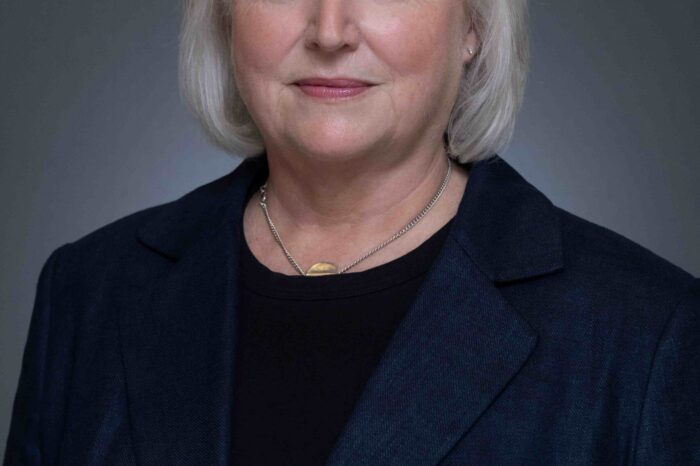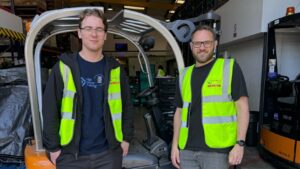ARCHITECTS ADD TALENTED NEW MEMBER TO SUSTAINABILITY TEAM

A progressive firm of architects has appointed a renowned sustainability specialist as part of its drive to help commercial clients adapt to stringent new environmental standards.
Scottish-headquartered Halliday Fraser Munro (HFM) has pledged that all seven of its UK offices and every project it undertakes could be carbon neutral by 2026.
HFM was founded in 1993 and works across a broad range of commercial, residential and education projects within the private and public sectors. In late 2021 it launched Replanet, its roadmap to becoming a leading voice in reducing the building and construction sector’s impact on global carbon emissions.
Now it has attracted senior architect Chris Antoniou (pictured above) as part of its Replanet initiative. He will bolster an already impressive team that brings clear commercial focus to the biggest challenge of the times.
Chris said: “The Replanet initiative was the final element that convinced me to make the move. HFM has a tangible plan, with clearly defined targets that will see it become a leading voice in sustainable architecture.
I feel passionately about the responsibilities architects have that go far beyond structure and aesthetics. Sustainability, health, well-being and tackling the climate emergency is a major part of the responsibilities bestowed upon us.”
As well as being accomplished in the Passivhaus standard in building design, Chris is also experienced in many other cutting edge sustainable materials and techniques. He was recruited from a niche environmental design specialist where he delivered projects including the Passivhaus-standard renovation of a church to create ultra-efficient and award-winning social housing.
However, by joining HFM – which won new business in excess of £160 million in the past year and employs 65 people across the UK – he will now be part of a team bringing a relentless commercial focus to make sustainability changes a reality on a far bigger scale.
David Halliday, Managing Director of HFM, said: “Our clients are facing change and challenges on a scale they have never previously imagined. This will bring challenges across residential, commercial and public sector projects.
We are talking about ambitious changes in planning, in building regulations, in operational practices, in supply chain pressures – and of course in securing funding for major projects as investors demand higher environmental standards.
In the midst of all this, our clients still have to deliver commercially viable projects. Construction needs to adapt quickly – indeed tomorrow’s buildings are already on the drawing board.”
He added: “We are determined to give our clients the best possible commercially focused advice and support that will enable them to deliver their projects in line with these very significant environmental targets.
This is why Chris is such a welcome addition to the team. As well as being an accredited Passivhaus practitioner, he is extremely knowledgeable when it comes to sustainable materials and techniques used in construction.”
Passivhaus buildings deliver world-leading energy efficiency and thermal performance. Despite having been around for 30 years, Passivhaus principles are now informing and underpinning a wide range of changes coming in building regulations and the planning system.
Milestones already reached include signing up to the RIBA 2030 challenge and being fully accredited as Certified Passivhaus Designers. It has also introduced a carbon calculator for all projects, rolled out hybrid working and green travel policies and taken delivery of low emission company cars.








